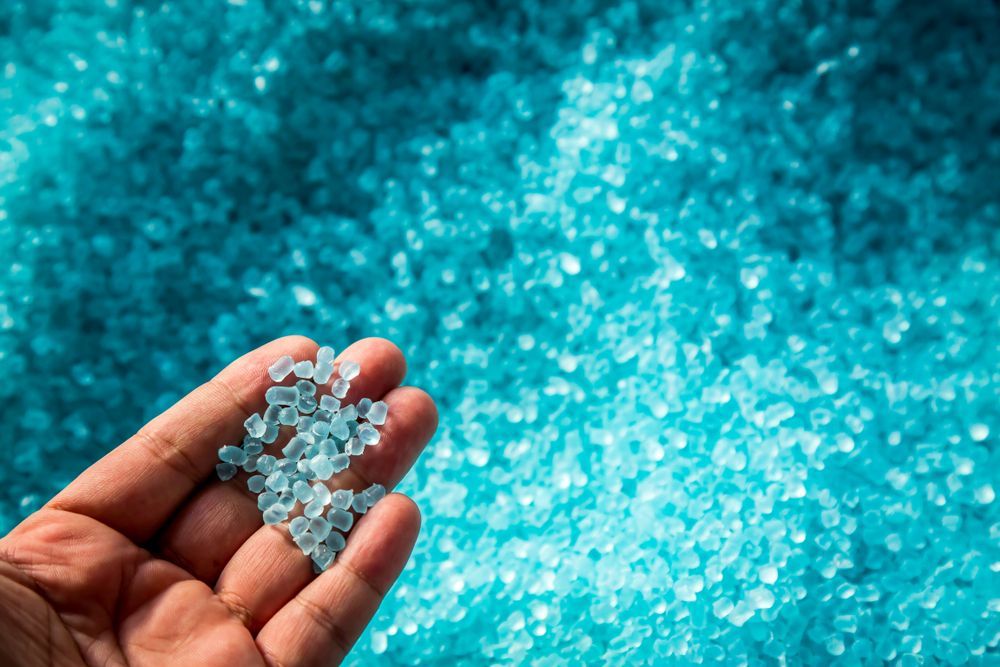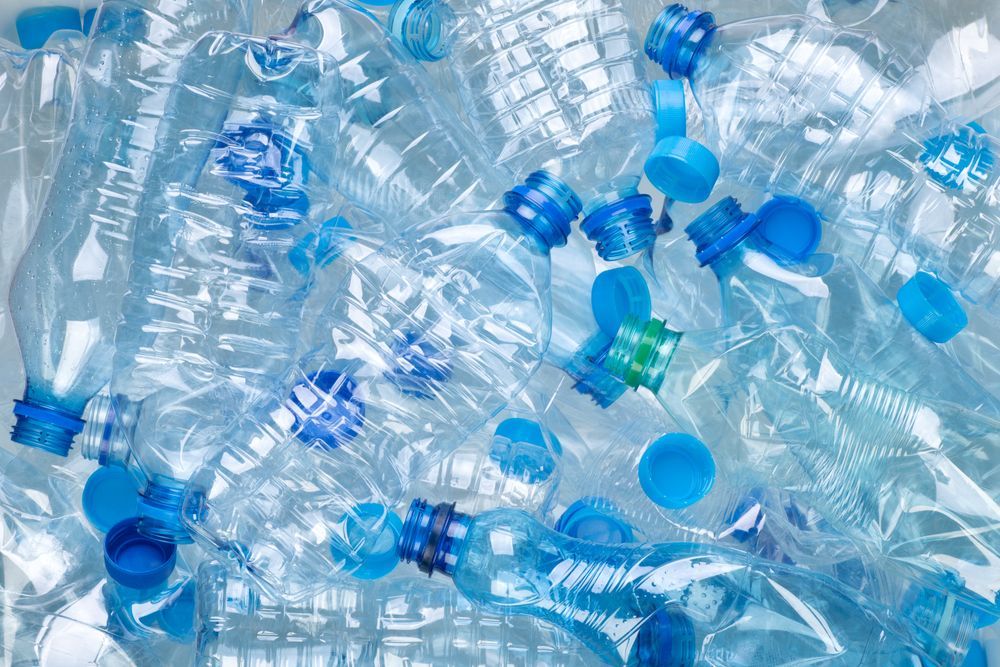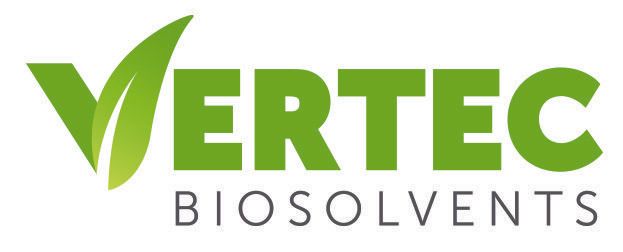Sustainable Alternatives to Petroleum-Based Plastics
September 18, 2025
What Are Petroleum-Based Plastics and Why Reduce Them?
Petroleum-based plastics are synthetic materials made from fossil fuels like crude oil and natural gas. They’re used in everything from packaging and textiles to electronics, automotive parts, and construction materials. Their durability, low cost, and versatility have helped make them one of the most common materials in the world.
But these advantages come with long-term consequences. Most petroleum-based plastics do not decompose. Instead, they break into smaller pieces that accumulate in soil, waterways, and living organisms. The process of making them also consumes significant energy and generates greenhouse gases.
Reducing the use of these plastics helps lower dependence on fossil fuels, decrease carbon emissions, and cut down on long-term waste. It also opens the door to safer, more
sustainable materials that align better with both regulatory trends and consumer expectations.

Environmental Impact and Consumer Concerns
Public concern about plastic waste continues to grow, driven in part by the spread of microplastics in food, water, and the environment. Alongside pollution, there is more scrutiny of the health risks tied to plastic additives like BPA and phthalates, especially in food and personal care packaging.
This shift in awareness is reshaping expectations. Buyers now weigh environmental and health impact as part of product quality, and companies are adjusting material choices to match. Sustainability has become part of long-term value, not just short-term performance.
Industries Driving Demand for Alternatives
The move toward sustainable plastic alternatives is gaining traction across several key
industries. Each sector brings its own requirements, but all share a common goal: reducing reliance on fossil-based materials without compromising performance.
Packaging
Food, beverage, and consumer goods companies are under pressure to reduce plastic waste. Retailers are now prioritizing recyclable, compostable, or reusable packaging to meet consumer expectations and comply with regulations.
Agriculture
Mulch films, containers, and seed coatings are being re-evaluated in favor of biodegradable or plant-based plastics that reduce soil contamination and disposal challenges.
Automotive and Transportation
Manufacturers are testing lighter, more sustainable materials to improve fuel efficiency and reduce overall environmental impact. Plant-based composites and recycled plastics are being used in interior panels, insulation, and under-the-hood components.
Electronics
There is growing interest in sustainable casings, cable insulation, and circuit components. Manufacturers are turning to bio-based plastics and recycled materials to reduce electronic waste.
Healthcare and Personal Care
Demand for safer materials is high. Medical device manufacturers and personal care brands are exploring plastic alternatives that are both high-performing and less harmful to human health.
Key Types of Sustainable Plastic Alternatives
Sustainable plastic alternatives fall into several categories, each designed to reduce environmental impact through different means. Some are made to break down more easily. Others are created from renewable resources or recycled inputs.
Biodegradable Plastics (PLA, PHA)
Biodegradable plastics are designed to decompose faster than traditional plastics, especially in industrial composting environments. PLA, made from corn or sugarcane, is common in packaging and food service items. PHA, produced through microbial fermentation, breaks down in soil and marine settings, making it useful for agriculture and single-use products. While they don’t degrade everywhere, these materials help reduce long-term plastic buildup.
Plant-Based Plastics (Starch- and Cellulose-Based)
These plastics are made from renewable plant sources like corn starch, sugarcane, or wood pulp. Starch-based plastics are often blended with other materials to improve strength and flexibility, while cellulose-based plastics offer clarity and durability for films and packaging. They help reduce fossil fuel use at the source and are often compostable under the right conditions.

Recycled and Upcycled Plastics
Recycled plastics use post-consumer or post-industrial waste to create new materials, reducing the need for virgin inputs. Mechanical recycling is common for PET and HDPE, while chemical recycling is expanding to handle mixed or contaminated streams. Upcycled plastics go a step further by converting waste into higher-value products. Both approaches extend material life and lower overall environmental impact.
Innovative Emerging Materials (Algae, Mycelium)
New materials made from algae and mycelium are gaining interest for their low-impact production and natural breakdown. Algae-based plastics are renewable and can absorb carbon during growth, making them attractive for packaging and disposable goods. Mycelium, the root structure of fungi, is being used to grow foam-like packaging and insulation. These materials are still in early stages but show strong potential for specialty applications.
Benefits and Challenges of Sustainable Plastics
Sustainable plastic alternatives offer clear environmental benefits, but they also come with performance trade-offs and cost considerations. Understanding both the advantages and limitations helps businesses make smarter decisions when evaluating new materials.
Environmental Advantages
Sustainable plastic alternatives reduce reliance on fossil fuels and cut greenhouse gas emissions during production. Many options also generate less waste at the end of life through composting, biodegradation, or recyclability. These materials help companies meet environmental goals and comply with shifting regulations focused on plastic reduction.
Performance and Cost Considerations
While sustainable plastics can lower environmental impact, they may not always match the durability or heat resistance of traditional plastics. Some require specialized processing or composting facilities. Costs can also be higher, especially for newer or bio-based materials. Businesses often need to balance sustainability goals with technical requirements and pricing models.
How Businesses Can Adopt Sustainable Plastics
Adopting sustainable plastics starts with evaluating how materials are used and where alternatives can fit. Some changes are simple, like swapping out packaging materials. Others may need testing and a gradual rollout.
A review of current plastic use often reveals areas where better options already exist. Working closely with trusted suppliers can speed up this process and help maintain quality standards. Even small material shifts can lead to meaningful reductions in waste and emissions.
The Role of Bio-Based Solvents in Supporting Sustainable Plastics
Bio-based solvents are used throughout the production and cleanup of sustainable plastics. They help dissolve, blend, and clean biopolymers without introducing hazardous chemicals. In recycling and upcycling, they replace petroleum-based solvents in separation and washing steps.
Vertec BioSolvents offers
plant-based solutions already used in facilities working with biodegradable and
recycled plastics. These products help meet safety standards, reduce chemical impact, and maintain compatibility with sensitive materials.
Choosing the Right Sustainable Plastic Alternative
Selecting the right material depends on how the plastic is used, how long it needs to last, and what happens to it at the end of its life. Some applications are a good fit for compostable options like PLA or PHA, while others benefit more from recycled or plant-based resins. Performance, cost, and compliance all factor into the decision.
For companies making the shift toward sustainable plastics, the materials are only part of the equation. The chemicals used during production and cleanup can also have a big impact.
If you're exploring sustainable plastic alternatives and need safer, more compatible solvents to support your process, we’d be happy to help.
Reach out to our team or take a closer look at our product lineup to get started.


